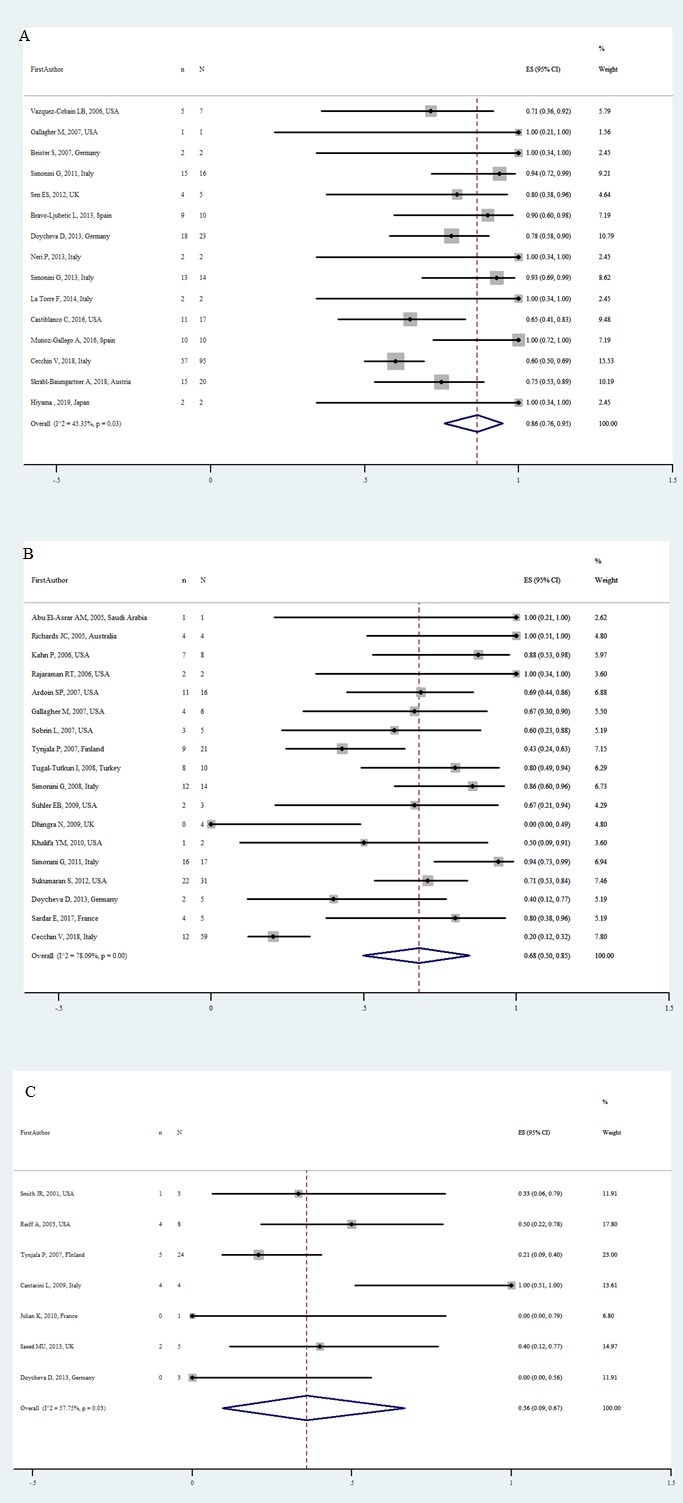Session Information
Session Type: Poster Session B
Session Time: 9:00AM-11:00AM
Background/Purpose: To summarize evidence regarding efficacy of anti-tumour necrosis factor-α (anti-TNFα) in childhood autoimmune chronic uveitis (cACU), refractory to common disease modifying antirheumatic drugs (DMARDs).
Methods: An updated systematic search was conducted between November 2012 and January 2020. Studies investigating the efficacy of anti-TNFα therapy, in children ages < 16 years, as the first biologic treatment for cACU, refractory to topical and/or systemic steroid and at least one DMARD, were eligible for inclusion. The primary outcome measure was the improvement of intraocular inflammation according to Standardization of Uveitis Nomenclature Working Group criteria. A combined estimate of the proportion of children responding to etanercept (ETA), infliximab (INF), and adalimumab (ADA) was determined.
Results: We identified 1677 articles and 37 articles were eligible. Three were randomized clinical trials (RCTs), one on ETA and 2 on ADA, and were excluded from pooled analysis. From the observational studies, a total of 487 children were identified: 226 received ADA, 213 INF and 48 ETA. The proportion of responding children was 86% (95% CI 76–95%) for ADA, 68% (95% CI 50–85%) for INF, and 36% (95% CI 9–67%) for ETA. Pooled analysis showed clear differences (χ2= 32.2, p< 0.0001): ADA and INF were both significantly superior to ETA (χ2 =26.8, p< 0.0001, and χ2= 7.41, p< 0.006 respectively), ADA significantly superior to INF (χ2= 13.4, p< 0.0002).
Conclusion: This metanalysis, consistent with recent RCT data, suggests the efficacy of ADA and INF in cACU treatment. However, ADA results superior to INF in this clinical setting.
To cite this abstract in AMA style:
Maccora I, Fusco E, Marrani E, Ramanan A, Simonini G. Changing Evidence over Time: Updated Meta-analysis Regarding Anti-TNF Efficacy in Childhood Chronic Uveitis [abstract]. Arthritis Rheumatol. 2020; 72 (suppl 10). https://acrabstracts.org/abstract/changing-evidence-over-time-updated-meta-analysis-regarding-anti-tnf-efficacy-in-childhood-chronic-uveitis/. Accessed .« Back to ACR Convergence 2020
ACR Meeting Abstracts - https://acrabstracts.org/abstract/changing-evidence-over-time-updated-meta-analysis-regarding-anti-tnf-efficacy-in-childhood-chronic-uveitis/

